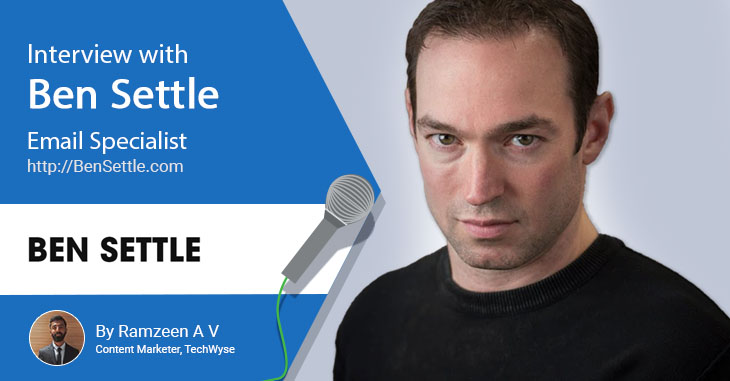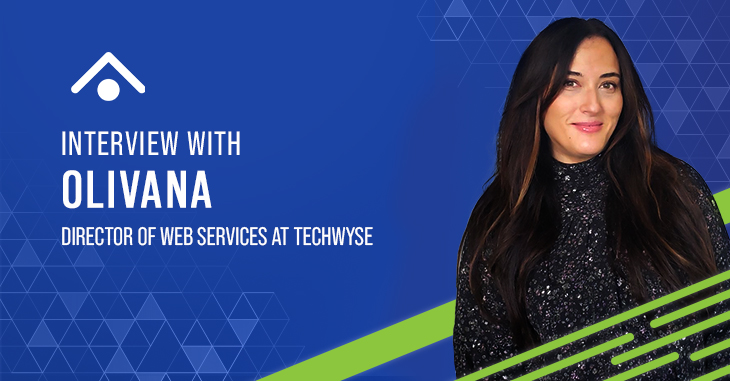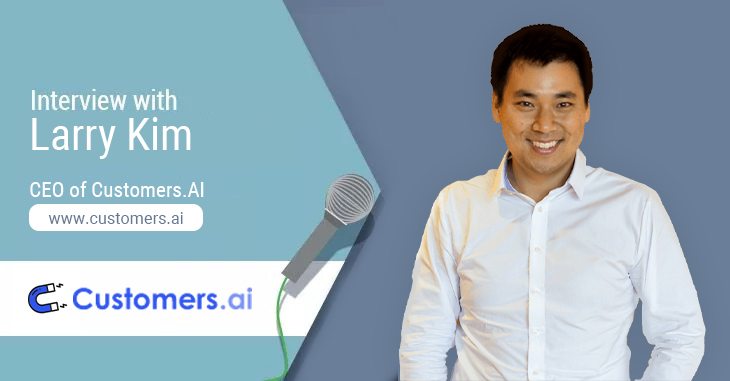Hello readers! Not in your wildest dreams would you have thought you could make a living out of writing emails. In our latest interview, I’ll introduce you to someone who did!
“If what you’re writing isn’t fun, then throw it out and write something fun. It should never feel like a chore if you do it right.” - Ben Settle, Email Specialist
Ben Settle is an email marketing professional who has been working in direct response copywriting for more than ten years. He has exceptional copywriting skills and of course, is an expert in writing killer emails! Over the years, he has contributed to thousands of email marketing campaigns, helping companies increase web traffic and driving more sales.
He has received testimonials from some of the best in the business; including Brian Clark, Gary Bencivenga, Scott Haines, Ken McCarthy, and many more!
Let's dive into the full interview with Ben.
1) You have been an expert in email marketing for quite a long time. How do you see email marketing evolving?
I don’t see it evolving as much as devolving. Or at least, I hope to see it devolve in some ways. By that, I mean, when email started, it was very basic. Plain text. Send offer to the list. Make money. Rinse and repeat. Since then, it’s gotten more and more complex and technologically advanced, much to a lot of peoples’ detriments.
There was a time when people — think of the big online guru names who built this industry in the 90’s — focused on the fundamentals. That is, writing good copy, creating great offers, concentrating on writing better subject lines, rather than trying to game the various email platforms into tricking spam filters and recipients into opening.
There are many automation options that 99% of marketers do not need and are sold for hundreds of dollars per month. People being sold expensive software to “test” email campaigns when they don’t have near big-enough list sizes to have anything near a statistically relevant result.
Frankly, “testing” emails — especially open rates, which are nearly impossible to track accurately — is an amusing concept to every single computer scientist I’ve talked to about it. They laugh at internet marketers chattering about their so-called email tests, especially open rates when Android phones and even Gmail make it very hard to track accurately. I’m not saying don't track and test, but if sales are what it takes to win the game, then sales, not opens or clicks, is the scoreboard. Focusing on anything that is not sales is like a football team being more worried about yards than touchdowns.
One of my missions is to bring simplicity back to email. I am even investing into building a platform with two other coder types. The idea is to turn the clock back and change what people are being taught and shaken down for via expensive products they can’t use.
To get people writing plain text emails (or that look like text they’d send to a friend and not something commercial) that their recipients want to read, open, and buy from, you need to focus more on sales than opens or clicks.
To illustrate what I mean, take one of my customers who joined my paid newsletter. They said that doing what I taught got his client more sales that December, usually their slowest month, than any other month combined. Then he said, “But Ben! My open rates are only 9%, how do I get those up?”
The irony writes itself.
2) What’s the magic behind writing subject lines that encourage people to open your email? What advice would you give for writing subject lines for link building campaigns?
The answer is: don’t sound like anyone and everyone else.
That really is the big “secret” to subject lines.
Say something nobody else is saying in their subject line, use your personality to the max, be interesting, and have something to say worth hearing.
While everyone else is using “Last Chance!” and “Bad news” and other lame subject lines that someone else did ten years ago that worked for that one marketer at that one time, you need to come out and say something unique, interesting and curiosity-provoking.
It’s not about tricking people into opening your emails. It’s not about swiping what someone else writes. It’s not even about being a great “copywriter.” It’s about saying something unique that nobody else would even think to say that is relevant to the content of the email.
3) Personalization is a word often related to email campaigns. How would you suggest personalizing emails when it comes to outreaching a massive number of prospects?
If you mean by using the reader’s first name, especially multiple times, in an email, it’s a waste of time in my experience. And, unless you’re selling to people who can barely turn a computer on and don’t know the medium, it can be borderline insulting. For example, I once got this email word-for-word from some random reader on my list:
===
Dear Ben
Greetings and felicitations!
I’m curious as to why you don’t use a salutation in your (irreverent, often entertaining but, honestly, can be a wee bit misogynistic) email missives?
Surely a little, “Dear Friend” or “Dear Aspiring Email Copywriting Supremo,” or even a casual “Howdy” or “Hey there!” wouldn’t go amiss?
Gosh, you know, it’s even possible these days to use the first name. Amazing!
Personal and engaging is good, no?
Or perhaps, against prevailing wisdom, it makes not one jot of difference?
Love to hear your views.
====
Here was my answer:
First, I get more opt-ins by not collecting first names and don't care to flag my emails as commercial by using a salutation. Frankly, if you know what you’re doing, including or not including a salutation or first name makes absolutely no difference whatsoever.
With email, people aren't as clueless as the typical "talk-down-to-people" goo-roos think. They know perfectly well that your personalized email, with their name randomly inserted throughout, isn't a one-on-one email any more than they think you really sent it from your iPhone if you fraudulently put “Sent from iPhone” at the bottom. Plus, the opt-out link is a tip-off, if nothing else, that it isn’t a personal email.
You can never go wrong being transparent, having a personality people want to read, and respecting your list’s intelligence.
The last thing I’ll say about this is a quote from one of the greatest copywriters who ever lived name, Bill Jayme. Now, he was talking about direct mail. But I think what he said applies just as much to email, if not more:
“Personalise indiscriminately at your peril. Do you really want, as a customer, some boob who gets turned on by seeing his own name repeated nine times in a single page?”
4) What is your preferred method of collecting email addresses and building your list?
The best, highest-quality leads are referral leads. This was true 3,000 years ago in the ancient cities, right up through the 20th century when direct response marketing was discovered, and up through today’s online-driven marketplace.
I teach a lot of ways to get these leads. But, the one that has always gotten me the best leads is doing interviews like this or via podcasts. Anyone who resonates with you, listens to you talk for 10, 15, 30 minutes (or reads a few pages), takes the time to go to your opt-in page, and give you their email address is a great potential lead.
The upside is, they were referred by the host, letting you borrow that host’s credibility. They pre-sell you as someone credible and worth listening to and increasing your overall personal brand.
The downside is, it’s usually slow, and trickles leads in, and can’t be scaled.
But here is something to think about:
The great Dan Kennedy, in his magnificent 7-Figure Academy course, went through everyone in the room — all who paid big money to be there, and even though he’s a marketing guy; a lead gen guy; someone who is a wizard at generating and closing paid leads; it was very telling that virtually everyone in that room was there because of a referral; not acquired via Google, Facebook, or any other kind of paid advertising.
I thought that spoke volumes.
5. How do you test a campaign before sending out emails to those long list of prospects?
I don’t. I sit down, write, and either schedule it to go out later or send it right away, then move on with whatever I want to do after that. This is heresy to virtually every email expert I’ve ever known, but I focus more on (1) things I can control vs things I can’t control and (2) sales trends than day to day, email by email results.
If I were dealing with a list of hundreds of thousands of people, I’d approach it differently; not from a testing point of view, but more for getting rid of people who aren’t opening emails. I’d test in the sense of looking at who has not opened an email in the first ten days.
I first learned this from a guy with a list of 2 million people in the health supplement niche. His reasoning was, a lot of people sign up with bogus emails they rarely check, then one day, they log in, see all your emails, forget who you are, and start clicking the “spam” button. This can potentially screw up your delivery rates and, in some cases, even get your email broadcasting account shut down.
Otherwise, I am more of a curation guy than a testing guy with email. I also focus 100% of my attention on the variables I can control — writing better subject lines, telling better stories, making better offers, using more curiosity, studying my market better, crafting better overall emails, etc. — than variables I cannot control.
I can’t control who receives, opens, clicks, and buys from my emails. I can control getting better at finding ways to increase email delivery, making myself better today at my craft, learning more about what my market wants, writing better copy, generating higher-quality leads, and continually finding offers they will be more likely to respond to.
6. We are flooded with marketing emails daily. How’d you recommend a marketer can make their email stand out and away from the spam box?
This goes back to not sounding like anyone else.
But besides that, the most important thing you can realize about this has nothing to do with email. It's an overall sales psychology. Why do people make the decision to read you, listen to you, open your emails, interact (ask questions, comment, reply, etc. — all of which can help your delivery when they do those things), and buy from you at all? The thing is they are not buying your offer/product/service; they are first and foremost buying you.
This is the thing everyone pounding their chests on social media about their tests and stats never realizes or bothers to think about. People buy from other people/businesses/brands they know, like, trust, and believe in, and who have the highest status — deserved or not.
If you are that business, then people will look for you in their spam folders, where you stand out like a fart in study hall. It almost works to your advantage. I believe it does, in many ways, as you are the only legit email in a folder where everyone else is a fraud. You can’t help but stand out.
It’s got very little do to with who is the best “marketer” or the best “copywriter” or whatever. Those things matter, obviously, but not nearly as much as you, and how much people know, like, trust, and believe in you. If you want proof of this, look at celebrities like Kim Kardashian. She commands nearly a million dollars just to tweet or post on Instagram about a brand. She has created multi-million dollar brands and businesses with a few keystrokes.
Is it because she’s the world’s greatest “copywriter?”
No, it’s because she has curated a fanbase and audience who loves her, believes her, and trusts her judgment.
The good news is, you can do this too. If you write emails every day to your list, focus more on giving them a great experience. Write emails they want to read and want to buy from, offer them things that genuinely improve their lives and situations, and gives them hope. Soon, you will build your audience of fans who will just as eagerly buy from you.
7. How important is a high converting landing page for a service-oriented niche?
Not nearly as important as the above factors. But I still think it’s important, and vital if you are selling to a cold lead who has never heard of you and did not know you existed 5 minutes ago.
Far more important than the landing page is the relationship you have with the prospect. It’s all about that relationship. If you have a strong relationship with your list, people will buy from you even if you have the highest prices, or necessarily have the “best” service, and are inundated with bad reviews, etc.
The way to build that relationship is to create an internet presence where all roads lead to the list. Then build that list, mail it correctly, and often. You’ll do more for your conversions than just having a great converting sales page and not having the email factors above in place.
8. What are possibly the worst mistakes you have seen in email marketing? Is there anything you’d suggest an email marketer keep away from?
One of the biggest mistakes is not mailing every day.
It probably sounds counterintuitive, but the best way I have ever seen to reduce, cut down, and practically eliminate spam complaints is to mail daily. Spam complaints can kill your deliverability and in some cases, get you shut down by your email broadcasting company. People only click the spam button for two reasons: They are spiteful trolls, or they are people who forgot about you because they never hear from you. The latter really don’t know who you are, and really do think you are a spammer.
Spam complaints are almost 100% preventable.
But even more important than that is being seen as a leader, and not just an expert. People listen to experts, but they buy, and often buy sight unseen, from people they consider leaders who offer them the solution to a problem that vexes them.
A lot of people project their own biases, emotions, and insecurities on their lists by thinking, “I better not mail too often, I hate getting lots of emails!” That’s not only playing to not lose instead of playing to win, but it’s also pure projection. Getting a daily email is not a problem your list has, that’s a problem you have. It only becomes a problem for your list if you bore them, write nonsense to them, insult their intelligence, or have nothing to say worth hearing and/or sell them crap.
And besides that, there’s a psychological aspect to it:
If you are trying to position yourself as a leader that sells and teaches, and you don’t have something to say, then your list, even if subconsciously, is going to wonder if you are really that leader you claim to be. And this is especially true if you have competitors who are mailing daily and more often.
TechWyse is a leading digital marketing agency based in Toronto, Canada. We’re Canada’s SEO and lead generation experts. If you would like to learn how your company could be generating more leads online, call TechWyse today at 866.208.3095 or contact us here.






